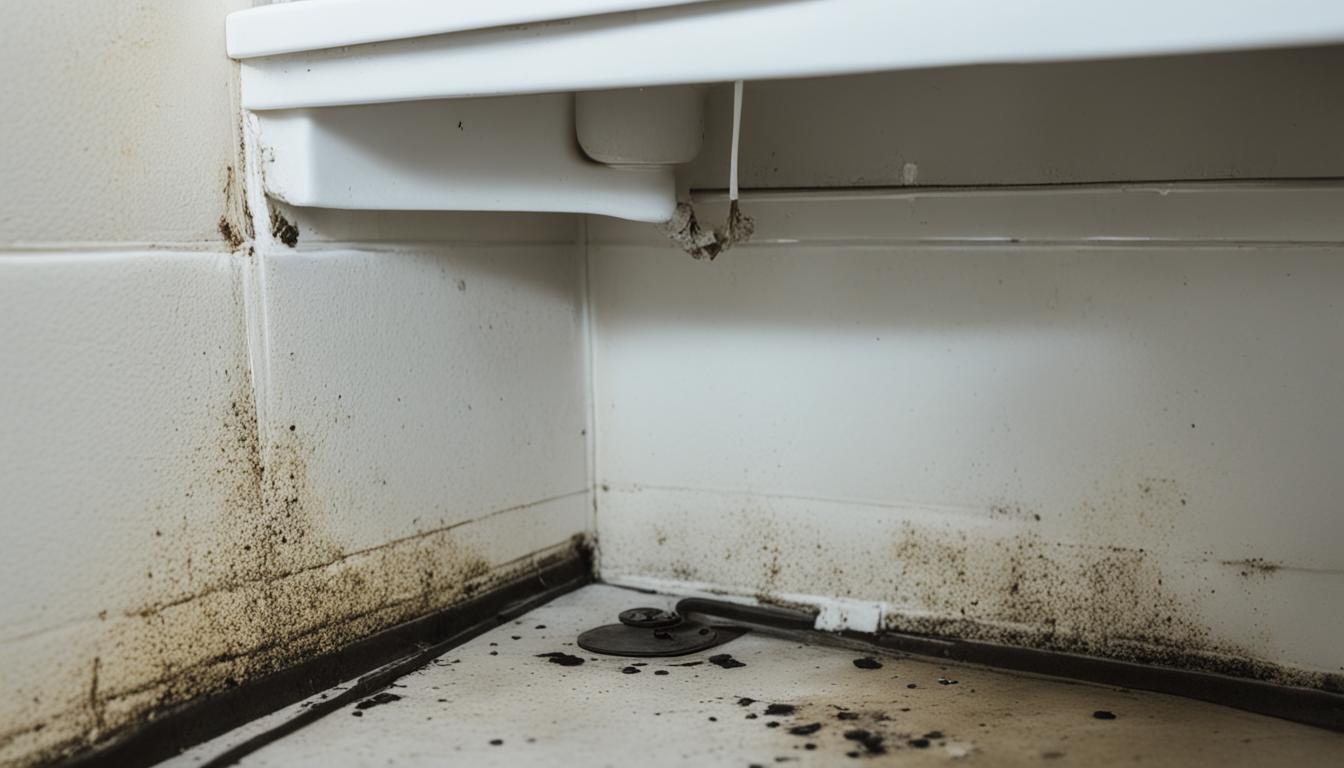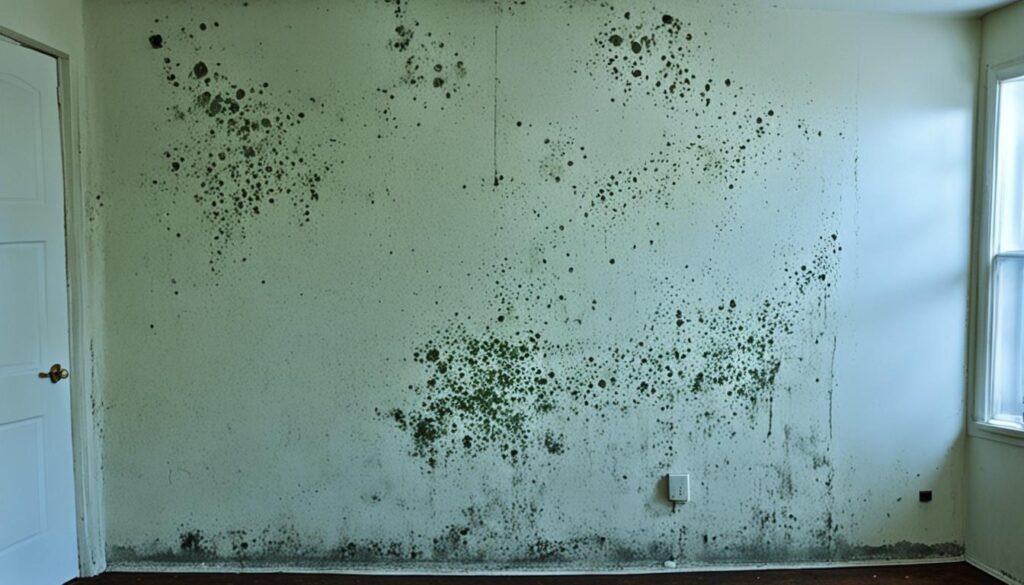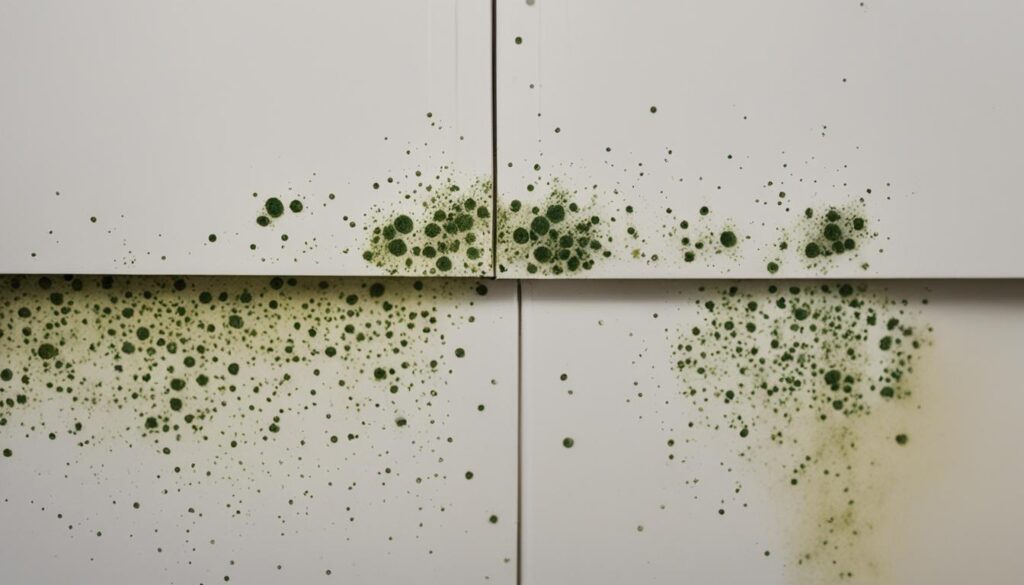
Understanding Mold in Apartment Risks & Solutions
Welcome to our comprehensive guide on understanding mold in apartments. In this article, we will explore the potential risks associated with mold growth in apartments and provide practical solutions for prevention, detection, and removal.
Mold can be a serious issue in apartments, posing health risks and causing property damage if left untreated. It is essential to take proactive measures to safeguard your living environment and ensure a mold-free space.
At Fix Mold Miami, we specialize in mold assessments, prevention, and remediation services throughout Florida. With our expertise and experience, we are committed to creating a healthy, mold-free living environment for apartment dwellers.
Key Takeaways:
- Mold in apartments can lead to health risks and property damage.
- Prevention, detection, and removal strategies are crucial in maintaining a mold-free apartment.
- Regular inspections and effective remediation techniques play a vital role in mold prevention.
- Understanding the signs of mold presence is essential for early detection and prompt action.
- For professional mold assessments, prevention, and remediation services in Florida, contact Fix Mold Miami at 305-465-6653.
Risks of Mold in Apartments
Mold growth in apartments can pose serious health risks to residents and cause extensive property damage. It’s important to understand the potential dangers associated with mold to ensure a safe living environment.
Exposure to mold in apartments can lead to various health issues, especially for individuals with respiratory conditions, allergies, or weakened immune systems. Common health risks associated with mold include:
- Allergic reactions: Mold spores can trigger allergic reactions, such as sneezing, coughing, wheezing, and skin rashes.
- Asthma attacks: Mold can worsen asthma symptoms and lead to frequent asthma attacks.
- Respiratory infections: Prolonged exposure to mold can increase the risk of developing respiratory infections, such as bronchitis or pneumonia.
- Sinusitis: Mold exposure can cause inflammation of the sinuses, leading to sinusitis and chronic sinus infections.
In addition to health risks, mold growth in apartments can also cause structural damage to the property. Mold can deteriorate building materials, such as drywall and wood, leading to costly repairs and renovations.
It is essential for apartment dwellers and property owners to prioritize mold prevention, detection, and remediation to maintain a safe and healthy living environment.
To gain a better understanding of the risks associated with mold in apartments, it is crucial to know the signs of mold presence. This includes visible mold growth, musty odors, water stains, and discoloration on walls, ceilings, or floors. If you suspect mold in your apartment, it is recommended to seek professional mold inspection and testing services.
By taking proactive measures to address mold issues promptly, apartment dwellers can minimize the health risks and prevent further property damage.

Mold Prevention Tips for Apartment Residents
Prevention is key when it comes to mold in apartments. Here are some essential tips to help residents avoid mold growth:
- Keep humidity levels in check by using dehumidifiers or air conditioners.
- Ensure proper ventilation in bathrooms, kitchens, and other areas prone to moisture.
- Fix any water leaks or plumbing issues immediately.
- Clean and dry any spills or water damage promptly.
- Avoid blocking air vents and maintain proper airflow throughout the apartment.
- Regularly inspect the apartment for signs of mold, especially in areas with high moisture levels.
- Remove any visible mold growth using appropriate cleaning solutions or seek professional mold remediation services.
By following these preventive measures, apartment residents can create an environment that is inhospitable to mold growth and ensure a healthier living space.
Solutions for Mold in Apartments
To address mold issues in apartments, it is crucial to implement effective solutions that encompass proper mold removal techniques, regular inspections, preventive measures, efficient remediation, and recognizing the signs of mold presence.
“Prevention is better than cure.” – Desiderius Erasmus
Proper Mold Removal Techniques
When it comes to apartment mold removal, it is important to employ proper techniques to ensure a thorough and lasting solution. This involves identifying the source of the mold growth, containing the affected area, using appropriate personal protective equipment (PPE), and utilizing effective cleaning methods.
Regular Inspections
Regular mold inspections in apartments are essential for early detection and prevention. By conducting routine inspections, property owners and tenants can identify potential moisture issues, areas prone to mold growth, and take prompt action to address them. Consider hiring professionals who specialize in mold inspection to ensure a comprehensive assessment.
Preventive Measures
Implementing preventive measures is crucial in minimizing the risk of mold growth in apartments. These measures include:
- Controlling indoor humidity levels to prevent excess moisture.
- Repairing any leaks or water damage immediately.
- Promoting proper ventilation in bathrooms, kitchens, and laundry areas.
- Using mold-resistant materials for construction and renovation.
Efficient Remediation
Apartment mold remediation involves the process of effectively eliminating mold growth and restoring the affected areas. This may require professional assistance to ensure thorough remediation and to prevent further spread of mold spores.
Recognizing Signs of Mold Presence
Being able to recognize the signs of mold presence is essential for early intervention. Common signs include:
- Persistent musty odors.
- Visible mold growth on surfaces, such as walls, ceilings, or furniture.
- Water stains or discoloration on walls or ceilings.
- Increased allergy symptoms or respiratory issues.
By being proactive and implementing these solutions for mold in apartments, you can create a healthier living environment and protect the structural integrity of your apartment.

| Solution | Description |
|---|---|
| Proper Mold Removal Techniques | Identifying the source, containing the area, using PPE, and effective cleaning methods. |
| Regular Inspections | Conducting routine inspections to detect and prevent mold growth. |
| Preventive Measures | Controlling humidity, repairing leaks, promoting ventilation, and using mold-resistant materials. |
| Efficient Remediation | Thorough elimination of mold growth and restoration of affected areas. |
| Recognizing Signs of Mold Presence | Identifying musty odors, visible mold growth, water stains, and increased allergy symptoms. |
Conclusion
In conclusion, taking immediate action is crucial when dealing with mold in apartments to safeguard both your health and the integrity of the living space. Whether it’s preventing mold growth, detecting its presence, or removing it entirely, employing the right strategies is essential to maintain a mold-free and healthy apartment environment.
For professional mold assessments, prevention, and remediation services in Florida, look no further than Fix Mold Miami. As Florida’s highest-rated company in mold assessments, prevention, and remediation, Fix Mold Miami offers expert solutions to address all your mold-related concerns. With their extensive knowledge and experience, you can trust them to provide effective and reliable services.
Don’t wait until mold becomes a more significant issue. Contact Fix Mold Miami today at 305-465-6653 or visit their website to schedule a professional mold assessment and get the peace of mind you deserve. Ensure your apartment remains mold-free and your well-being is protected with Fix Mold Miami.




